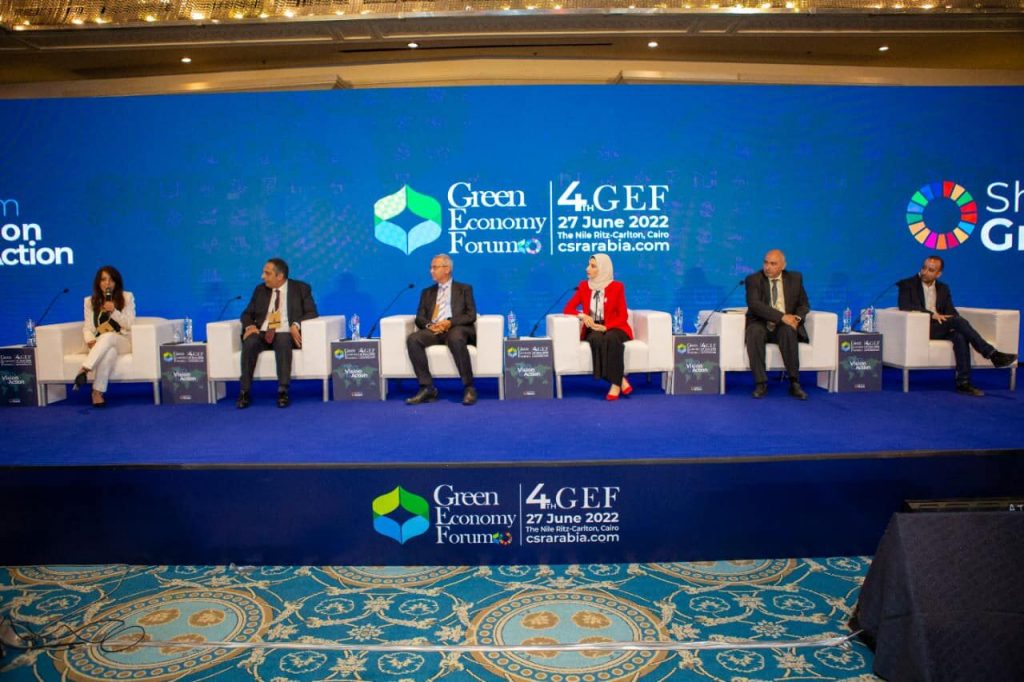Commercial International Bank (CIB) Hosts Panel
As Africa and the Middle East face the unrelenting consequences of global warming, CIB hosts a panel to address climate challenges in the region accompanied by leading public figures and experts. Moderated by CIBs Chief Sustainability Officer, Dr. Dalia A. Kader, the panel included opening statements from H.E Dr. Hala El Said, Egyptian Minister of Planning and Economic Development, and H.E Dr. Yasmine Fouad Minister of Environment. The panelists included South Africa’s Minister of Environment, Forestry and Fisheries H.E. Barbara Creecy and AU Commissioner for Infrastructure & Energy, and a member of CIBs Board of Directors, H.E Dr. Amani Abou- Zeid, among many others.
The panel’s objective is to determine and discern the role and potential of Public-Private Partnerships in climate finance by exhibiting examples and case studies. A symbolic exemplification of that is Egypt issuing a $750 million green bond offering with a 5-year tenor, in 2020, becoming the first in the MENA region. Additionally, Egypt anticipates taking further action by offering green bonds worth over $1 billion in 2021, sustained by CIB First Corporate Green bond issuance for $100 million. Egypt and CIBs accomplishments demonstrate the fundamental impact of public and private partnerships.
COP26 draft agreement is published
After almost two weeks of rigorous negotiations, the first draft of the agreement emerging from COP26 is published. The draft is a seven-page outline detailing how countries will reach the goal of capping global temperature at 1.5 degrees Celsius, among other goals to tackle climate change. Key elements included within the document are:
“Recognizes the importance of the best available science for effective climate action and policy-making;”
“Stresses the urgency of increased ambition and action in relation to mitigation, adaptation, and finance in this critical decade to address the gaps in the implementation of the long-term goals of the Paris Agreement;”
“Notes with serious concern that the current provision of climate finance for adaptation is insufficient to respond to worsening climate change impacts in developing country Parties;”
“Urges developed country Parties to urgently scale up their provision of climate finance for adaptation so as to respond to the needs of developing country Parties as part of a global effort”
Saudi energy minister believes climate solutions should be more objective .
Saudi Arabia’s Energy Minister Prince Abdulaziz bin Salman Al-Saud emphasizes the importance of diverse climate solutions, explaining “It’s important that we recognize the diversity of climate solutions … without any bias towards or against any particular source of energy.” He believes the focus should instead be on helping less developed countries achieve their climate goals.





